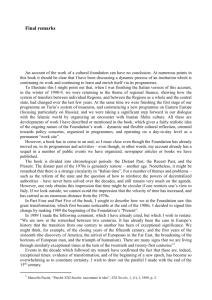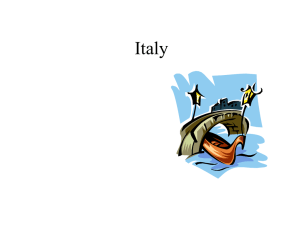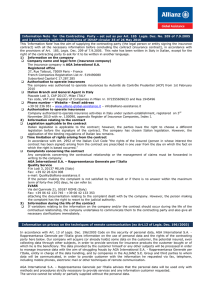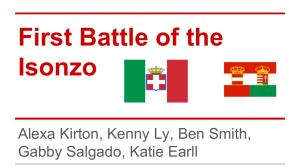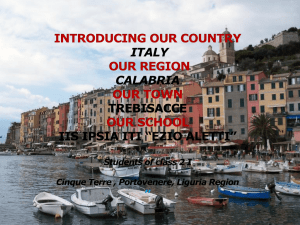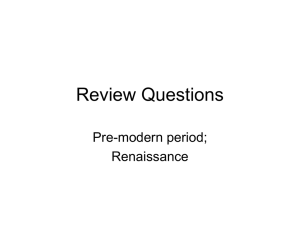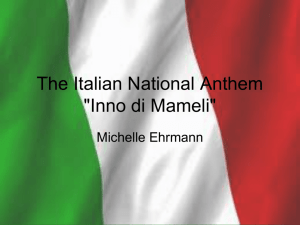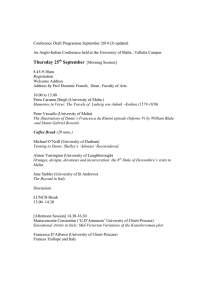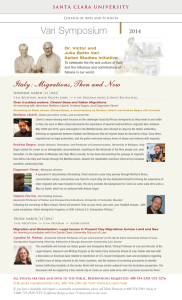Calling home: explorations on domestic change in Italy
advertisement
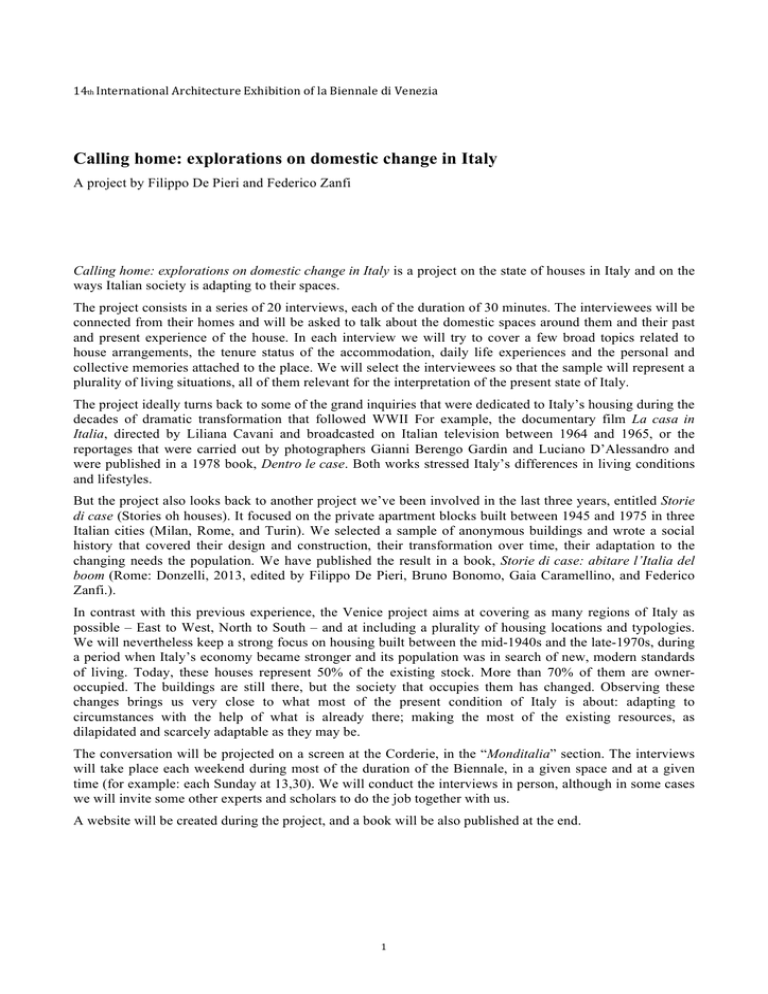
14th International Architecture Exhibition of la Biennale di Venezia Calling home: explorations on domestic change in Italy A project by Filippo De Pieri and Federico Zanfi Calling home: explorations on domestic change in Italy is a project on the state of houses in Italy and on the ways Italian society is adapting to their spaces. The project consists in a series of 20 interviews, each of the duration of 30 minutes. The interviewees will be connected from their homes and will be asked to talk about the domestic spaces around them and their past and present experience of the house. In each interview we will try to cover a few broad topics related to house arrangements, the tenure status of the accommodation, daily life experiences and the personal and collective memories attached to the place. We will select the interviewees so that the sample will represent a plurality of living situations, all of them relevant for the interpretation of the present state of Italy. The project ideally turns back to some of the grand inquiries that were dedicated to Italy’s housing during the decades of dramatic transformation that followed WWII For example, the documentary film La casa in Italia, directed by Liliana Cavani and broadcasted on Italian television between 1964 and 1965, or the reportages that were carried out by photographers Gianni Berengo Gardin and Luciano D’Alessandro and were published in a 1978 book, Dentro le case. Both works stressed Italy’s differences in living conditions and lifestyles. But the project also looks back to another project we’ve been involved in the last three years, entitled Storie di case (Stories oh houses). It focused on the private apartment blocks built between 1945 and 1975 in three Italian cities (Milan, Rome, and Turin). We selected a sample of anonymous buildings and wrote a social history that covered their design and construction, their transformation over time, their adaptation to the changing needs the population. We have published the result in a book, Storie di case: abitare l’Italia del boom (Rome: Donzelli, 2013, edited by Filippo De Pieri, Bruno Bonomo, Gaia Caramellino, and Federico Zanfi.). In contrast with this previous experience, the Venice project aims at covering as many regions of Italy as possible – East to West, North to South – and at including a plurality of housing locations and typologies. We will nevertheless keep a strong focus on housing built between the mid-1940s and the late-1970s, during a period when Italy’s economy became stronger and its population was in search of new, modern standards of living. Today, these houses represent 50% of the existing stock. More than 70% of them are owneroccupied. The buildings are still there, but the society that occupies them has changed. Observing these changes brings us very close to what most of the present condition of Italy is about: adapting to circumstances with the help of what is already there; making the most of the existing resources, as dilapidated and scarcely adaptable as they may be. The conversation will be projected on a screen at the Corderie, in the “Monditalia” section. The interviews will take place each weekend during most of the duration of the Biennale, in a given space and at a given time (for example: each Sunday at 13,30). We will conduct the interviews in person, although in some cases we will invite some other experts and scholars to do the job together with us. A website will be created during the project, and a book will be also published at the end. 1 Curators’ profiles and contacts Filippo De Pieri, Ph.D. I am assistant professor in architectural/urban history at the Politecnico di Torino. I have been working on the history of nineteenth-century planning, the history of urban conservation, the history and transformation of middle-class housing. My publications include Il controllo improbabile. Progetti urbani, burocrazie, decisioni in una città capitale dell’Ottocento (Franco Angeli, 2005) and Storie di case. Abitare l’Italia del boom (w/ B. Bonomo, G. Caramellino and F. Zanfi, Donzelli, 2013). I am a review editor for “Planning Perspectives”. I translated several architectural essays into Italian (these include Rem Koolhaas’ Junkspace). My previous experiences with architectural exhibitions include the participation to the research teams for Happy: Cities and Public Happiness in Post-War Europe (Berlin, AdK/Rotterdam, NAi, 2004) and T011: Biografia di una città (Torino, OGR/Urban Center, 2008). Federico Zanfi, Ph.D. I am assistant professor in urban design at the Department of architecture and urban studies at the Politecnico di Milano. My research focuses on “post-growth” transformations in Italian urban contexts, with particular emphasis on illegal settlements in Italy’s South, diffuse urbanization in centralnorthern regions and middle-class housing in the main metropolitan centres. On these issues I have published Città latenti. Un progetto per l’Italia abusiva (Bruno Mondadori, 2008), Quando l’autostrada non basta. Infrastrutture, paesaggio e urbanistica nel territorio pedemontano (w/ A. Lanzani and others, Quodlibet, 2013) and Storie di case. Abitare l’Italia del boom (w/ F. De Pieri, B. Bonomo and G. Caramellino, Donzelli, 2013). 2


